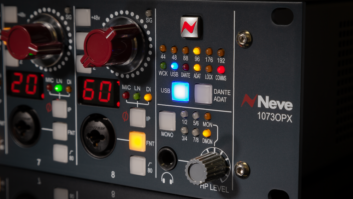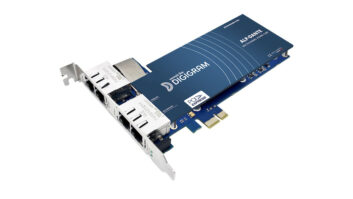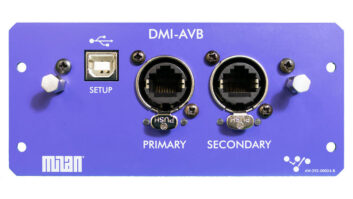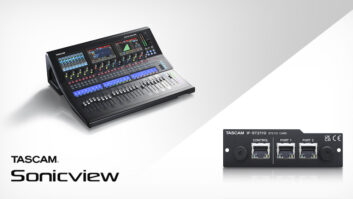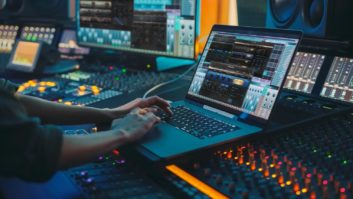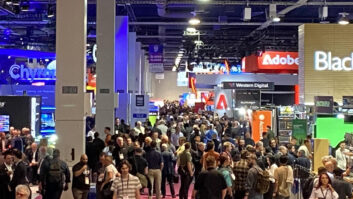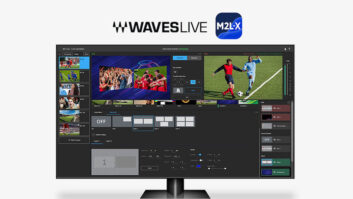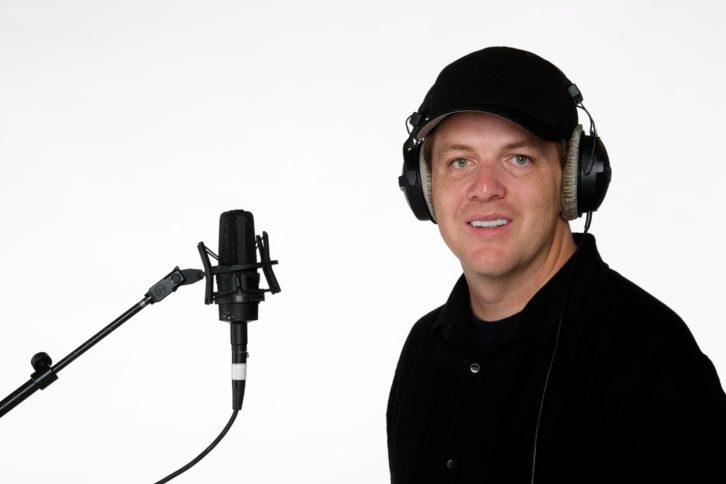
I’m approaching my 28th year serving as an audio engineering educator at the Conservatory of Recording Arts & Sciences, which we call CRAS. During this time, I’ve experienced a lot of changes in audio technology, workflows…even changes in our students. With them, I’ve had to react with changes to how and what I teach. Until now, most of these changes have been slow, gradual crossfades, but, in 2020, unprecedented change to where and how we can educate have prompted significant questions, with little time to prepare answers.
How Do We Continue to Educate?
The most popular question is, “How do we keep educating?” Many institutions have proposed, or even mandated, that educators simply convert to online classes. Just take your current curriculum, put it online, do some video conferencing, offer online tests and we’re all set!
For myself, and for many other audio educators, we can only wish it were that simple. At CRAS, the calling card of our program is that it’s built around hands-on education, working in small teams, in production environments that reflect the audio industry we serve. Our pedagogical approach, our assessment methodologies, and even our facilities have all been built around the idea that we’re not just conveying knowledge, but also preparing our students for employment. While these pillars don’t necessarily crumble in a world of social distancing and stay-at-home orders, the approach has to be re-examined, and in that process many follow-up questions come to light.
I ask my students to answer questions every day, and when they are stuck on one, I ask them to persevere. … If I ask this of my students, then as an audio engineering educator, shouldn’t I ask the same of myself?
How Do We Evaluate the Process?
Teaching and testing on knowledge is relatively easy to do online, but providing experiential learning that builds upon that knowledge is imperative if we’re to prepare our students for employment. Creating opportunities to evaluate both the hard technical and soft personal skills is imperative.
Watching a team of students work as engineers where they’re responsible to track a band by a given deadline, while having an issue with the cue system because someone made the wrong patch, causing the drummer to refuse to play because he can’t hear the bass player, causing the producer to complain that we’re losing takes, making the assistant verbally bad mouth the chief engineer to the guitarist—all of that provides educational opportunities like no other!
In a distance-learning model, how do we create these dynamic, interactive, fast-paced, dare I say, stressful learning opportunities to illustrate both the hard and soft skills needed to gain employment in audio production?
How Can We Establish Points of Reference?
Do you remember that first time you ever heard a really good mix, on a really good set of speakers, in a really good playback environment? At CRAS, in Studio F, I’ve watched students’ jaws drop as they listen through the high-end monitors to songs they’d heard a hundred times before. In that moment, their minds re-defined a new reference point for what’s possible with sound.
Jump to the opposite end of the signal flow and consider the same for the nuances of recording. CRAS has roughly 80 different types of microphones, and over the course of the program students experience how different mics and mic techniques interact with different instruments and room environments. Students experience printing to an analog tape machine and using real tube outboard gear, which provides a valuable addition to their mental library that will serve them for the rest of their life.
Yes, we can emulate some of these things with software on a laptop, but a person who’s done it on the real deal sees that tape speed setting on an emulation plug-in from a different, more informed perspective. These referential experiences are what many of our students value most while attending our school. How can we create these important defining moments for students on the other end of the Internet as they sit with their laptop listening on headphones?
Where Are the Jobs?
And let’s not forget why most people choose to attend an institute of higher learning in the first place—to get a J-O-B! It seems like an obvious question: Where are the jobs? While many sectors of audio production have slowed or stopped, I’ve talked to professionals in other sectors who are busier than ever. Some of those who have continued working through the pandemic have done so because they’ve shifted their approach in workflows and technologies.
It’s likely that even when we’re able to return to normal, there will be a new normal that education must align with. In order to serve our students, education needs to place an importance on creating a dialog with the industry and ask: “Where is their work being done? What are the changes to how it’s being done?”
Coming up with answers to these questions might seem daunting. Honestly, I’ve lost sleep over them, but I’m hopeful. I ask my students to answer questions every day, and when they are stuck on one, I ask them to persevere. Look at it from a different angle, try another approach and draw upon everything you’ve learned up until now. If I ask this of my students, then as an audio engineering educator, shouldn’t I ask the same of myself?
Robert Brock is Director of Education at CRAS.

